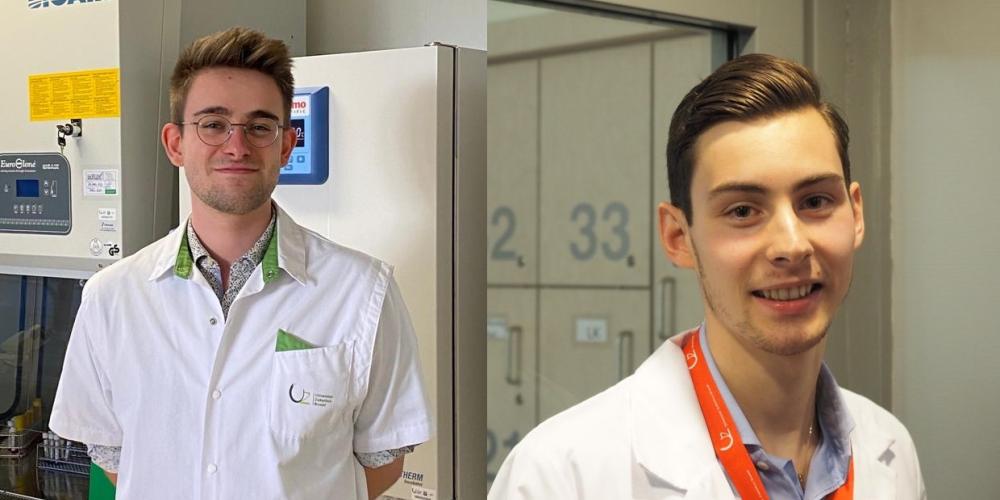
The non-profit Scriptie vzw has shortlisted 10 theses from 508 entries for the Flemish Thesis Prize 2020. Among them are theses by Robin Vanstokstraeten and Félix Buyck, both from the Faculty of Medicine and Pharmacy of the Vrije Universiteit Brussel. Vanderstraeten studied super-bacteria and Buyck chronic back pain. The winning thesis will be announced on 17 December. The prize is worth €2,500.
Eliminating super-bacteria
Robin Vanstokstraeten, with Prof Dr Apr Deborah De Geyter and Dr Florence Crombe, led by Prof Dr Denis Piérard, Head of Clinical Biology at the UZ Brussel, investigated whether sinks in hospitals play a role in the spread of highly resistant bacteria – known as super-bacteria – against which few types of antibiotics are effective. It is important to understand where these bacteria come from so the problem can be tackled at source.
Bacteria need food and water. These conditions are abundant in the drain of a sink: water from the tap and nutrients from the waste poured into the sink. In hospitals, this waste often contains large quantities of antibiotics, so that only the very strongest bacteria remain alive in these sinks. These bacteria produce a biofilm on the walls of the drain: an extremely strong layer of mucus in which they not only find protection but develop resistance to antibiotics.
The research showed that these contaminated sinks indeed play a role in infecting patients. The good news, according to the thesis, is that the problem can be combated with relatively simple measures. For example, the design of the sink plays a major role: the less the water can splash and mist, the less the bacteria can spread. Furthermore, care providers should consider whether it is necessary to place a sink next to each bed. Some hospitals have already removed sinks from patient rooms, resulting in huge decreases in the number of hospital-acquired infections.
Erasing the pain memory
Chronic low back pain is a huge social problem. Master student Félix Buyck, led by Prof Dr Maarten Moens and the STIMULUS research group of the Neurosurgery Department of the UZ Brussel, investigated the effects of spinal cord stimulation on the brain. This is a treatment in which small currents, unnoticeable to the patient are administered to the spinal cord to treat chronic pain.
The spinal cord connects all the nerves of the body with the brain, and we know that prolonged pain can lead to changes in the brain structure. These include an enlargement of the area of the brain called the hippocampus. It seems that treatment with spinal cord stimulation causes the hippocampus to shrink again. This could cause the ‘pain memory’ to be erased: if their brains ‘think’ less about pain, people also experience less pain. The brain, as this thesis shows, clearly opens a door to better pain therapy for patients with chronic lower back pain.